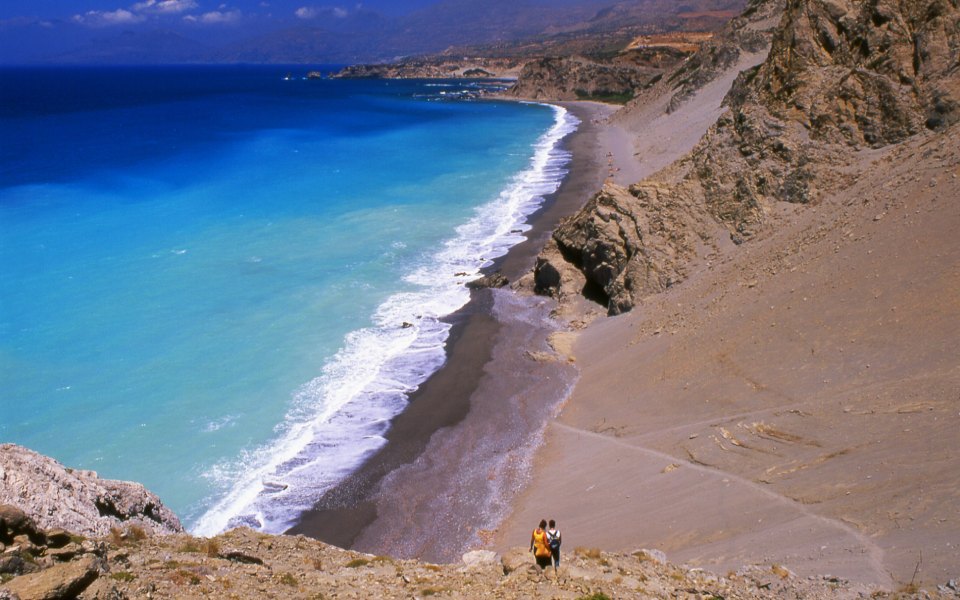Where should I visit in Greece? This is a question we expect many will be asking themselves as we head into 2021, when (hopefully) we’ll once again be able to enjoy more normal summer travels in Greece.
If nothing else, the pandemic has taught us that we can’t take anything for granted. And on top of that, for many this will be the first proper summer vacation in two years – so if you’re planning on traveling in the summer of 2021, you’re going to want to make it count.
But where to go in the vast diversity that Greece has to offer? We can’t really tell you that: what is one person’s idyllic paradise is another’s dull backwater.
But what we can tell you is about some of the places and experiences that have moved us the most, which is just what our writers and contributors do below:
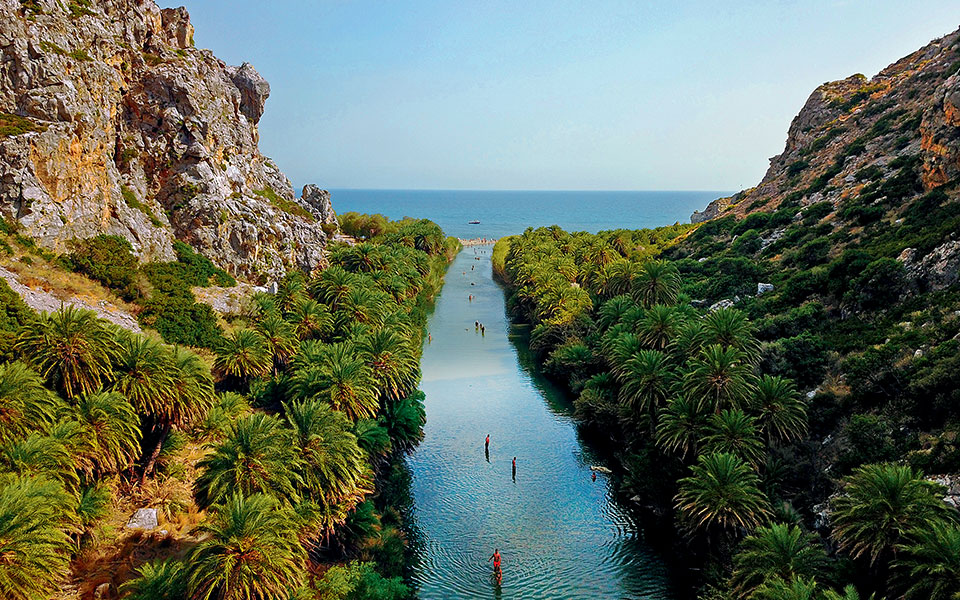
© Shutterstock
1. Crete for Wild, south coast adventures
Some of the most enchanting landscapes in Crete are found south of Rethymno town. Through gentle hills, towering gorges, and magnificent round-shouldered mountains, the Libyan Sea awaits.
Twelve kilometers east of Plakias, Preveli Monastery stands high above an exotic palm-lined river and a legendary shore. Active in rebellions against the Turks in the 19th century, today the monastery is more famous for its exploits during WWII. It was from Preveli Beach that in 1941 hundreds of Allied soldiers who had evaded capture after the fall of Crete were spirited away by submarine under the noses of their Nazi pursuers, having been given refuge by Preveli’s monks.
Follow the road west and you will find four more of the best beaches in the province – Ammoudi, Ammoudaki, and Schinaria, and the pick of the lot, Damnoni. Head further and you’ll arrive at Rodakino. Take the road down and a handful of sandy strips appear – Korakas, Polyrizos and Peristeres.
Even greater seclusion is to be found east of Preveli, at Aghia Fotini, Triopetra and Aghios Pavlos. Here Ligres and Xiromilia (together a one-kilometer stretch of golden sand) are set in a pristine landscape.
The ultimate Rethymno beach adventure? Get to know your inner castaway on the Paximadia Islands in the Gulf of Messara. But you’ll need a boat to get there – sailing from Aghia Galini or Kokkinos Pirgos. Paximada, the easternmost isle, is the one to head for; crystal clear waters and serene solitude are guaranteed. – Michael Sweet
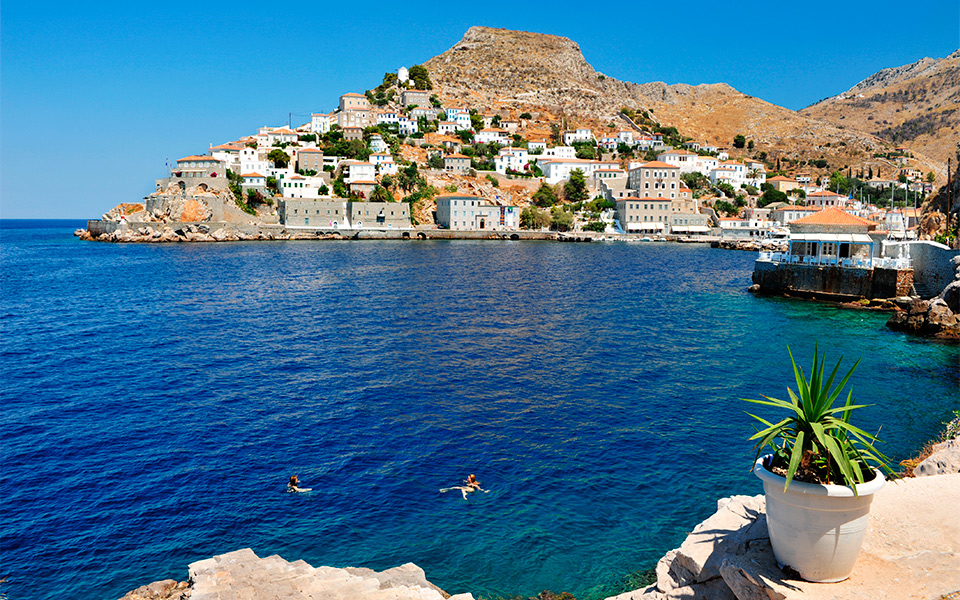
© Shutterstock
2. Hydra for Lazy days
Follow me on a jaunt around Hydra. We’ll meet at the port, grab a coffee at the Pirate Bar and gaze at the docked boats gently rocking on the water. We’ll see well-fed stray cats lounging in the shade, and marvel at the donkeys that are standing stock still in the burning sun.
We’ll start walking on the paved road that follows the rocky shore towards Kodylenia’s taverna. On the way, we’ll stop at Spilia beach bar for a swim in the dark turquoise waters below followed by refreshments.
Later, we will dry under the sun as we continue our journey towards Kodylenia and its charming terrace that seems to hang over the small fishing harbor at Kamini. The food there will be so excellent that we will order and eat everything on the menu. After that, the time will come to sit back, glass of ouzo in hand, and wait for the sun to set over the sea.
– Mariana Mégevand
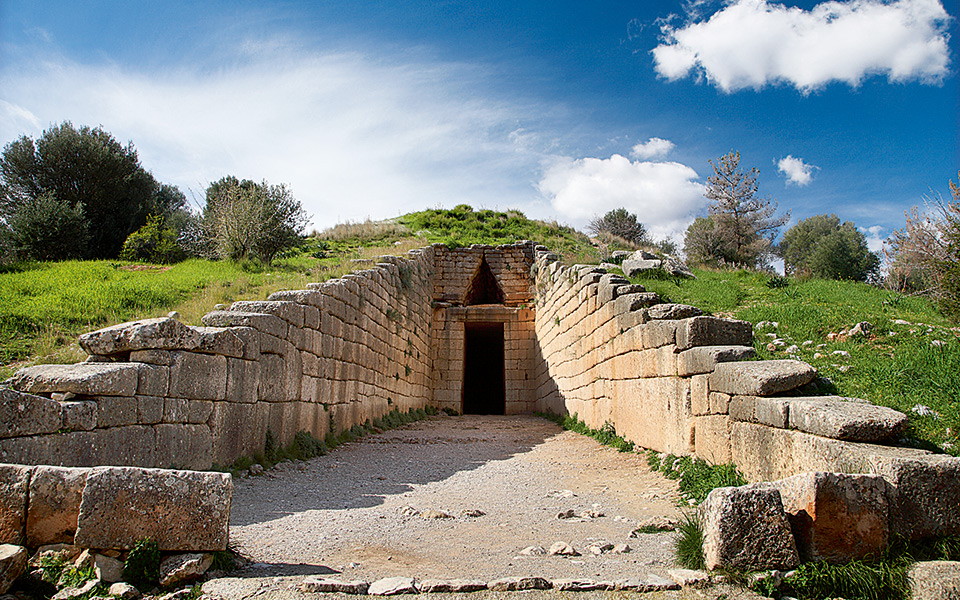
© Olga Charami
3. Mycenae: Land of Ancient Blood
I’ve been to Mycenae four times. The first two times it was summer and I went by train, back when the railroad ran down from Athens into the Peloponnese, and it was a good hot uphill stretch of the legs from the station to the site. The third time was mid-September and I took a local bus from Nafplion, and the fourth time it was summer again. I came in a rental car, and it rained that day.
Still, every time I’ve trudged up that short rise from the road and passed under that great ageless arch made up of monumental stones and adorned at its apex with the pair of bas-relief predators that give it the name of the Lion Gate, I’ve felt a shiver in my soul. On the inner side of this gate lies the ancestral home of the House of Atreus, one-time dwelling place of Agamemnon, Clytemnestra, Electra, Orestes and Iphigenia, all noble and all doomed. It’s true – no, perhaps not the tale of the bloody line of Atreus, at least not in all the gory detail that we know it – but the effect that this amazing site has on me. It’s goosebumps, every time.
Right here stood a mighty fortified hilltop complex of residences and public areas, and all this as far back as 1550 BC, more than a thousand years before work started on the Parthenon. Perhaps it’s the location – atop the wide crest of a hill above a sweeping Peloponnesian plain. Or maybe it’s the place of the story of this royal house in our own culture. King Agamemnon, his brother, King Menelaos, and his sister-in-law, the incomparable Helen, all sit at the heart of the accounts of the Trojan War left to us by Homer – tales that shaped our fundamental notions of glory, honor, courage and hubris down across the ages until this very day.
Whatever weird magic is at work here, it stirs me, and although I’m certain that after 3500 years, it’s not going anywhere, I still don’t like to leave it too long between my visits. – Don Domonkos
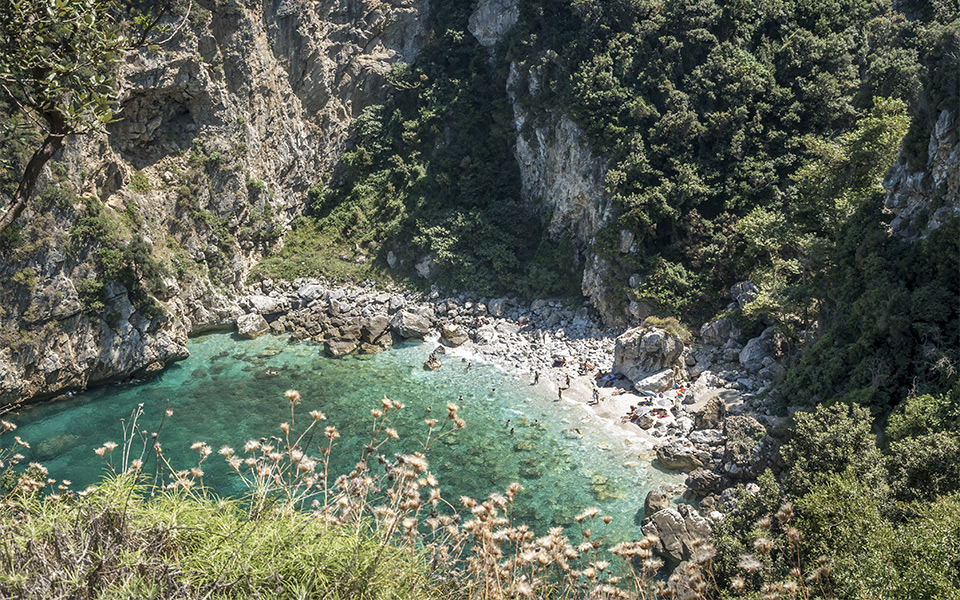
© Shutterstock
4. A Road Trip around Pelion
In Greek mythology, the goddesses Hera, Athena and Aphrodite went to a wedding in the lush mountains of the Pelion peninsula, where they all made a claim for a golden apple said to rightfully belong to the fairest guest at the reception. It sparked a spiral of jealousy, a story that eventually ends with the war of Troy.
A road trip around the forests, stone-built villages and beaches of Pelion in the real world, on the other hand, often ends with snacking on some juicy apples from the local orchards on the ride home. The only jealousy at play is towards the locals, so privileged to get to stay.
Few other places wrap up the best of Greece this well, as your zigzagging drive will bounce you between dramatically beautiful places to swim and idyllic mountain villages, shaded by enormous centenarian plane trees.
Don’t miss: Damouchari Beach was the setting for parts of the movie Mamma Mia, but walking the paths in the less-crowded village of Vizitsa will make you feel like an actor playing an ancient god on a film set built for you. – Paulina Kapsali
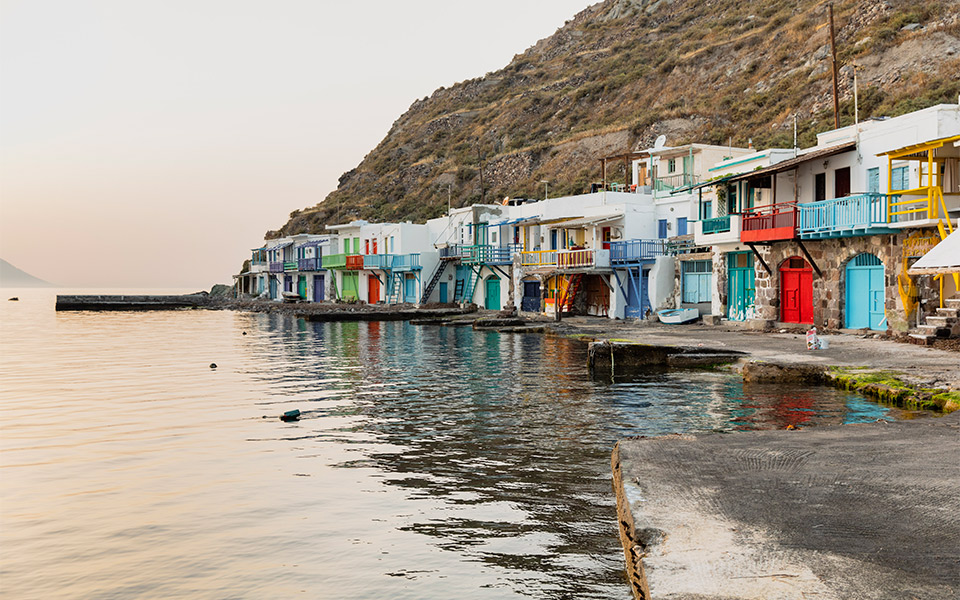
© Nicholas Mastoras
5. Life on the seashore on Milos
On this vacation you won’t need clothes. Perhaps a bathing suit, a pair of sandals and a towel. The fishing villages of Milos, with their microscopic homes right on the water’s edge, are ideal for forgetting about using cars to get around (and civilization in general), and for swimming all day long.
In these coastal settlements an old way of life still persists. The fishermen set out at dawn to gather their nets; the traditional homemakers start cooking from early in the day, the aromas from their pots wafting through the houses; the younger folk sip their coffees outside and the children spend all day in and out of the water. Fourkouvouni, Areti, Schinopi, Fyropotamos, Mandrakia, Aghios Konstantinos…
These days, the place to take pictures is Klima. It’s renowned as the site where the Venus de Milo was discovered, but it also has the best sunset. The waterfront houses of the village are known as “syrmata” (meaning “cables”). The fishermen would pull their boats into these structures using cables in order to repair them or store them over the winter. The cables were later replaced by boat trailers, and today these boat sheds have been converted into summer homes for fishermen, and rooms to rent. – Natasha Blatsiou
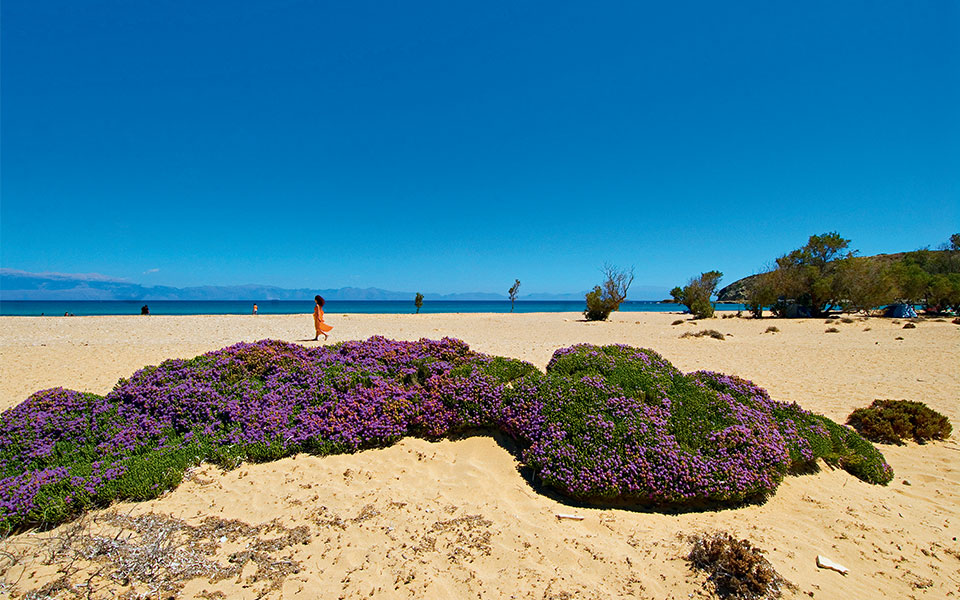
© Clairy Moustafellou
6. Living free on Gavdos
It was Homer who described the island of Gavdos as “a world apart”. More than two thousand years later it’s still an apt description. Nearly fifty kilometers from Crete’s southern shore, Gavdos is Europe’s most southerly point – and it’s as much a state of mind as it is an island.
Renowned for its alternative lifestyle visitors, this is a place that harks back to simpler days and ways. There may not be free love on this hippie-chic isle, but Gavdos is full of good vibrations. With around 100 permanent residents and covering only 36 square kilometers, the island has achieved almost mythic status: the last “undiscovered” island retreat in Greece, untouched by mass tourism.
For decades it was the preserve of a few hardy independent travelers who rocked up on its legendary Sarakiniko Beach to camp, chill-out, and sleep for free under the brightest stars in Europe. Today that demographic still comes, but others do too, taking rooms in a handful of hotels and studios, mostly in Karaves, the port, or the tiny capital of Kastri.
The Gavdos story was richly enhanced by a group of Russian nuclear scientists who made their home here after the Chernobyl disaster in 1986. Eager to find a place to heal and reinvent themselves, they’re still here – a colorful collective of philosophers who have become synonymous with the island’s life-enhancing energies.
Come for truly pristine beaches and inspiring solitude. – Michael Sweet
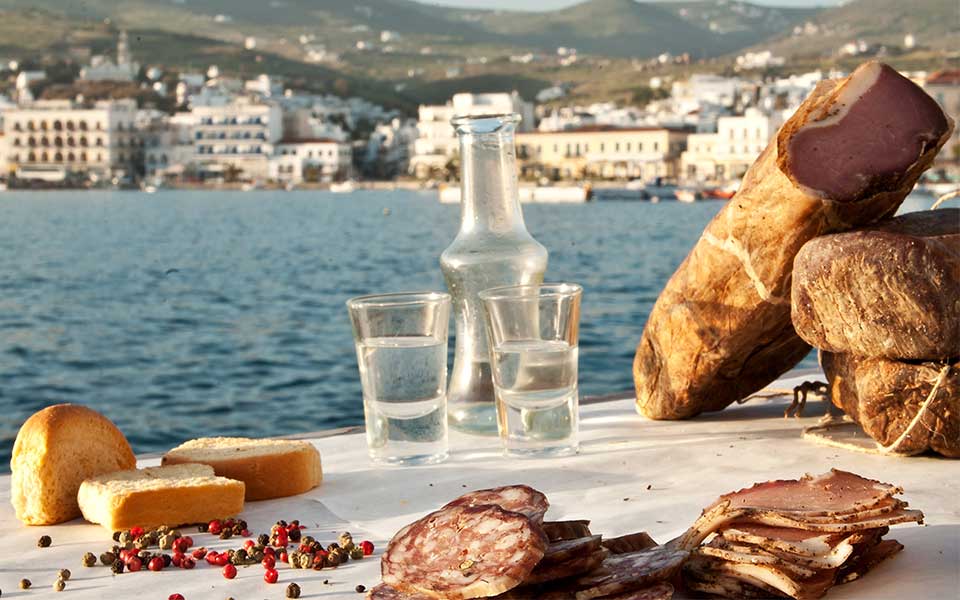
© Evelyn Foskolou
7. Indulge your Inner Gourmand on Tinos
Even if you haven’t planned on it, it is more than likely that you’ll end up sampling a wide range of culinary delights on Tinos; this island will lure you down the road of indulgence.
Savor ambelofasoula (string beans) with garlic and vinaigrette in Komi (one of the many Catholic villages of Tinos); caramelized beef stifado (stewed with shallots) with hand-cut french fries in Aetofolia (a village with a curious layout, with stone-paved paths but no clear central square); gourmet fish soup overlooking the bay of Ysternia; and soft-boiled eggs in the aptly named village of Krokos (the Greek word for “yolk”).
You will sip simple but delightful wines in the winery of the village of Arnados, each with a name derived from the local dialect (such as the Lagkridi meaning “verbose” and Arathymia meaning “desire”). You will enjoy the most fragrant galaktoboureko (traditional custard pie) in Pyrgos, the village of Tinos’ famed marble sculptors, which itself resembles an open-air museum.
And after a few days of exploring the restaurants, the tavernas, the cafés, the brunch spots and wine bars of this island with its ever-more sophisticated gastronomic scene, you will likely end up in Hora in order to collect for yourself the other edible treasures Tinos has to offer: tsimbiti (a sweet cheese pie), kopanisti (a soft and tangy PDO cheese made in local dairies) and louza (a refined cold cut made with pork fillet cured in wine with allspice and cloves). – Eleftheria Alavanou
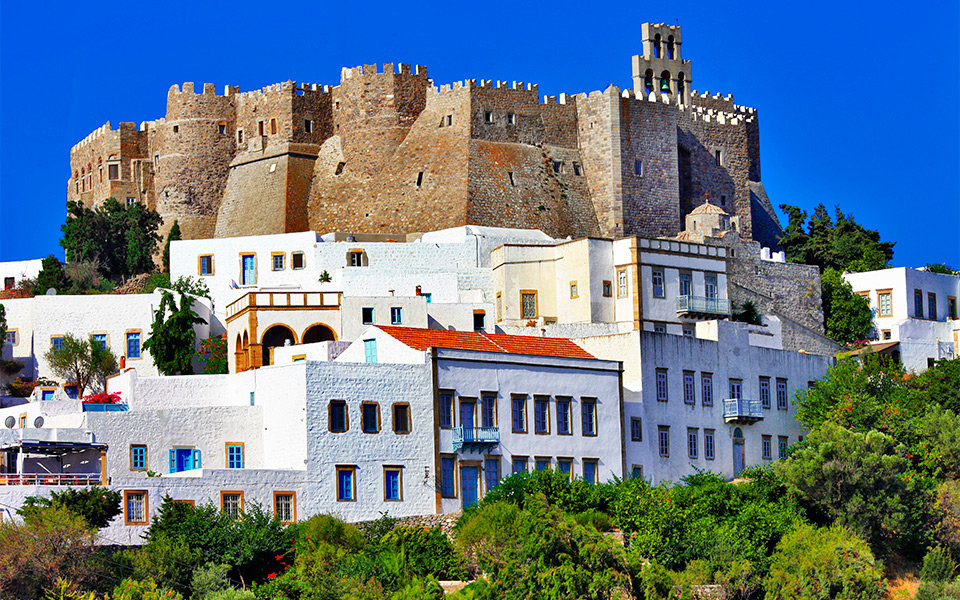
© Shutterstock
8. Cosmopolitanism at its purest on Patmos
You’ll finish your afternoon swim in the bay of Grikos with the islet of Tragonisi in the background. You’ll emerge from the ice-cold water, and warm your feet in the fine sand. You’ll rest for a little on your sunbed, sipping a glass of white wine made from Assyrtiko grapes grown in the nearby vineyard. You’ll salute the bowed tamarisk trees and hurry to your car to make it in time to see the sunset from the refurbished old windmills.
Seabirds will glide around you, the Aegean laid out before you. As the sun drops behind the horizon, you’ll take in the castle town of Patmos that is laid out around the Monastery of St John the Theologian. When night falls, you’ll stroll the labyrinthine alleys of the Hora. And you’ll get lost!
It’s a night out without a beginning or end. You’ll stop for seafood meze at the eatery Pantheon – as you are, in your sandals and still salty from the sea. You’ll throw a light sweater across your shoulders because at night a cool breeze wafts through the whitewashed lanes. You won’t want to leave this small balcony, and your table will soon become “one” with the others.
You’ll hear stories about the island’s ancient paths from French hikers; Turkish sailors will invite you to join them for a dip at the uninhabited islands of Tiganakia. And all together you’ll head for drinks at the bar of the central square. You’ll kick back on the big cushions that turn the low white walls into sofas every night. You’ll dance, and you’ll make plans to meet up the next morning at the refurbished Xenia hotel.
And it will all start again from the beginning. On Patmos, there where you live cosmopolitanism in its proper dimensions. – John Papadimitriou

